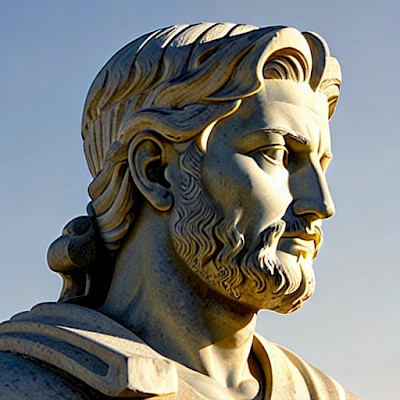Epictetus, born around AD 50. in Hierapolis, Phrygia (present-day Turkey), he emerged as one of the most influential Stoic philosophers of antiquity. Although his life began in slavery, his teachings transcended the limitations of his social status and became a beacon of wisdom for generations to come.
After being freed from slavery, Epictetus found his way into Stoic philosophy through the teachings of the philosopher Musonius Rufus. His deep commitment to self-discipline, virtue, and inner freedom led him to become a noted Stoic teacher. His main focus was on cultivating a calm mind and finding true happiness through acceptance and self-transcendence.
The essence of Epictetus's philosophy focused on the power of the human mind to transform external circumstances.
He taught that while we can't control everything around us, we can control our responses and attitudes to situations. His famous statement, "It is not the things themselves that disturb us, but our opinions about them", reflects his focus on liberation from suffering through a change in perspective.
The "Dissertations" and "Manual of Epictetus" are key works that encapsulate his teachings on how to live an authentic life and in harmony with nature. His focus on resilience, self-discipline, and restraint continues to be relevant in the modern world, inspiring people to embrace virtue and self-transcendence.
Epictetus influenced a wide range of thinkers, from Roman emperors to contemporary philosophers, and his legacy lives on through the ages.
His philosophy invites us to explore our relationship with the internal and external world, and to find true freedom through self-reflection and the constant search for virtue.
